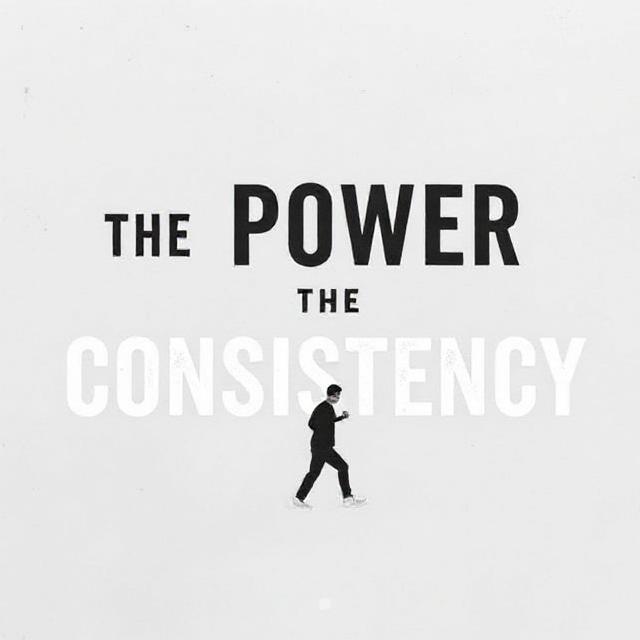
Improvement does not come from big life changes. It comes from small, consistent habits repeated daily. If you want to grow mentally, emotionally, and physically, focus on building simple routines that push you forward every single day. Self improvement is not about motivation; it’s about discipline and daily action.
Quick Overview
Here’s a quick breakdown of the habits covered in this guide:
- Start Your Day with Purpose
- Plan Your Day with Clear Intentions
- Practice Mental Discipline
- Read or Learn Something Daily
- Improve Your Environment
- Track Your Progress
- Build Physical Discipline
- Limit Digital Distractions
- Reflect Before You Sleep
- Commit to One New Growth Action Daily
Start Your Day with Purpose
A productive day begins with a structured morning. Avoid starting your day in a reactive state. Waking up and scrolling your phone immediately puts your mind in distraction mode.
What to Do
- Wake up and sit for a moment without touching your phone.
- Set one clear intention for the day.
- Remind yourself why you are working on self improvement.
A focused morning sets the tone for everything you do after. When your mind begins with direction, your actions follow with clarity.
Plan Your Day with Clear Intentions
Most people go through the day without purpose. They react to situations instead of leading their actions. Planning your day prevents you from wasting time on low-value activities.
Action Steps
- Write down 3 important tasks you must complete.
- Avoid long to-do lists that create stress.
- Complete the hardest task first to build discipline.
When your day is planned, you don’t depend on motivation. You move with intention, and your productivity increases naturally.
Practice Mental Discipline
Self-improvement starts in the mind. If your thoughts are weak, your actions will follow the same pattern. Mental discipline means training your mind to stay controlled and focused.
Practical Ways to Build Mental Discipline
- Sit quietly for 5 minutes and focus on breathing.
- When your mind wanders, bring it back intentionally.
- Practice doing simple tasks without distraction.
Training the mind in small things prepares you for bigger challenges. Control your thoughts, and you will control your actions.
Read or Learn Something Daily
Growth requires new input. If your mind keeps receiving the same information, your life will remain in the same place. Learning daily keeps your brain active and improves your thinking patterns.
Implementation Tips
- Read at least 10 minutes a day.
- Choose books or articles that help you develop skills or mindset.
- Take one useful lesson and apply it the same day.
Knowledge without action is useless. Learn less but apply more.
Improve Your Environment
Your surroundings influence your behavior more than motivation does. A messy, noisy environment leads to a messy mind. Improving your environment helps you stay focused and calm.
Small Environmental Changes
- Clean your workspace at the end of the day.
- Remove unnecessary distractions from your desk or room.
- Surround yourself with things that remind you of your goals.
A controlled environment builds a controlled mind. Design your surroundings to support your growth.
Track Your Progress
Most people quit because they don’t see immediate results. Tracking progress helps you stay aware of your improvement and keeps you accountable.
Tracking Methods
- Use a simple notebook or digital tracker.
- Write what habits you completed each day.
- Focus on consistency, not perfection.
The goal is not to be perfect but to avoid stopping. Once you see progress on paper, your motivation will increase naturally.
Build Physical Discipline
Your body affects your mental clarity. When you improve your physical health, your energy and discipline improve as well. You don’t need complicated workouts. You just need consistency.
Action Steps
- Move your body daily — even a 10-minute walk counts.
- Drink enough water to maintain energy.
- Stretch or do light exercise to keep your body active.
A disciplined body supports a disciplined mind. You can’t grow mentally while living in a tired and inactive body.
Limit Digital Distractions
Constant phone usage destroys focus. Digital distraction is one of the biggest obstacles to self improvement. To grow, you must protect your attention.
How to Control Digital Habits
- Set specific times to check messages or social media.
- Turn off non-essential notifications.
- Keep your phone away while working or thinking.
Strong people control their attention. Weak people give it away to every notification.
Reflect Before You Sleep
Self improvement requires awareness. Ending your day with reflection helps you understand your behavior and recognize areas for growth.
Simple Reflection Exercise
- Ask yourself: What did I do well today?
- What could I improve tomorrow?
- Did my actions align with my goals?
Reflection turns daily actions into lessons. Without reflection, you repeat the same patterns unconsciously.
Commit to One New Growth Action Daily
Growth is built by adding small improvements. Doing just one productive thing beyond your routine keeps you progressing steadily.
Examples
- Learn a new skill for 10 minutes.
- Write a thought or lesson in a journal.
- Push yourself to finish something you usually delay.
One extra positive action per day equals 365 improvements a year. Small daily steps build powerful long-term change.
FAQ – Daily Habits for Self Improvement
How long does it take to see results from daily habits?
You may start feeling more control and clarity within a week, but visible results usually come after consistent effort for at least 30 days.
What if I miss a day?
Missing a day is not failure. The key is to return the next day without starting over mentally. Consistency matters more than perfection.
How many habits should I start with?
Start with one or two habits. Build consistency first. Once your routine becomes automatic, add more gradually.
Do I need motivation every day?
No. Discipline is stronger than motivation. Motivation is temporary, but daily habits create automatic action.



